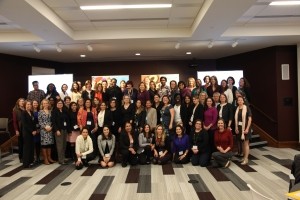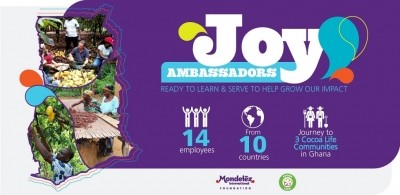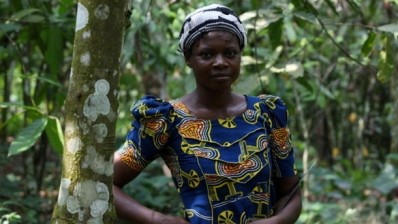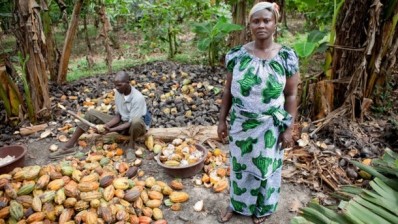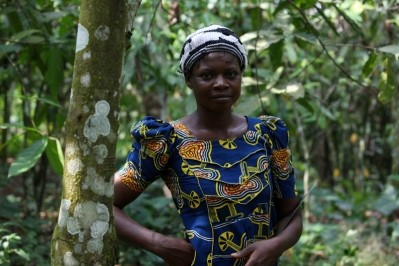‘Clear business case’ to invest in women in cocoa: WINCC
'A long way to go' to equality for women cocoa farmers
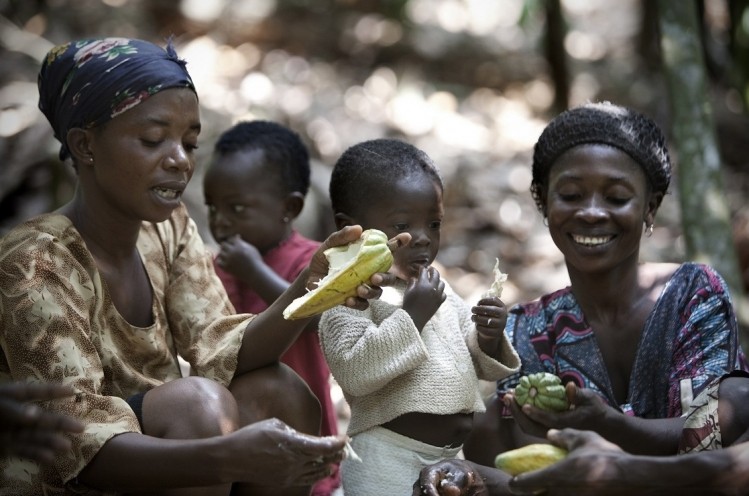
The Women in Cocoa and Chocolate Network (WINCC) was setup in May last year. It is open to women working throughout the entire cocoa value chain, including farmers, government representatives and women at chocolate companies and NGOs.
The network last week hosted its fourth meeting at Hershey's headquarters in Pennsylvania, US.
Seventy women from large multinational chocolate companies, smaller players and traders participated, making it one of the first meetings at a large chocolate company's headquarters to bring competitors together.
Equal land rights
Boukje Theeuwes, senior program manager at Solidaridad Europe, a Dutch development agency, said: "There's still a long way to go to create a more equal, balanced situation for women.
"Women farmers face more challenges because they do not always have equal land rights. They don’t have the collateral that men have."
She said the legal systems and culture in Ghana and Côte d’Ivoire put women at a disadvantage.
“When a husband dies, the land will go to his son or the male part of the family,” said Theeuwes.
This means female farmers struggle to secure loans to invest in farms because they lack collateral.
A business case to invest in women
But why should companies favor supporting women when men outnumbering women in cocoa farming?
Women key to addressing global warming
Solidaridad says investing in women and girls is also key to reversing global warming. An assessment by nonprofit Project Drawdown suggests educating girls and securing women’s rights for voluntary family planning are two of the top ten ways to reduce CO2 emissions. It projects the two methods can reduce total atmospheric CO2-EQ by 59.60 gross tonnage (GT) each, partly driven by a reduction in family sizes and the global population.
"By investing in women and girls, there's a very clear business case, for example, for higher yields, more profit per hectare, as well as other social benefits," said Theeuwes.
A report by the World Bank suggests if women and men in Ghana had equal land rights and tenure security, women’s profits per hectare would nearly double.
The same report says child nutrition in communities improves when there is a $10 increase in Ivorian women's income.
"Women see the same impact on improved health and nutrition as a $110 increase in men's income - that's basically because the money is spent differently,” said Theeuwes.
"If you want to accelerate transformation to a more sustainable and responsible sector, there's a business case to invest in women,” she said.
Women in cocoa: Numbers understated
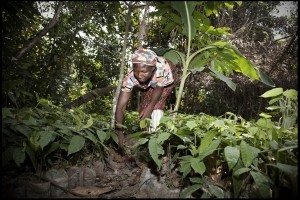
In Ghana, women make up 25% of the cocoa farming population, according to official statistics.
However, Solidaridad claims the true percentage is much higher.
"A lot of the work women do is a bit invisible. They do a lot of work on the farm, but in many countries they cannot own property so they are never registered as a farmer when in fact they actually run the farm,” said Theeuwes.
"Also, once the activities become profitable or involve buying or selling it’s typically men that take on those roles. Once women start to generate some profit and income, they basically lose it,” she continued.
Women own 25% of the cocoa plantations in Côte d’Ivoire and make up approximately 68% of the labor force, according to the African Development Bank. However, they only earn 21% of the income generated.
Theeuwes said women often lack access to finance preventing them from investing in productivity.
"We need a more corporations sharing risk to improve access to finance, from the public sector, the private sector and donors,” said the Solidaridad program manager.
"Women need to have equal land rights and tenure security - they need the same access men have to inputs,” she said.
Hershey CEO: ‘We are making progress’
The WINCC network aims to connect women in the cocoa supply chain and is not an advocacy group.
However, its members - including representatives from Solidaridad and Hershey - can lobby as individuals or companies.
Michele Buck, CEO of The Hershey Company, said: “We were pleased to host the WINCC event at our headquarters in Hershey, Pennsylvania.
“Women play a key role in improving the resilience and sustainability of the cocoa value chain and we are making great progress on this front. Together with women across the cocoa industry, I see our greatest days ahead of us.”

